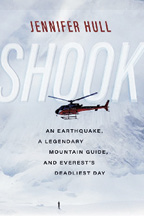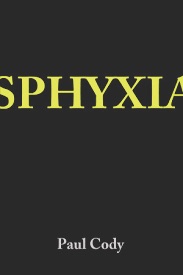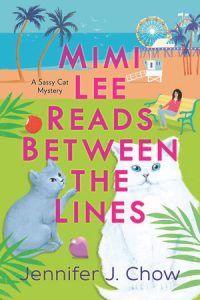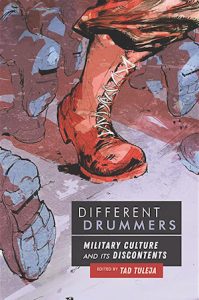 Shook
Shook
Jennifer Hull ’92
Hull’s nonfiction work recounts the harrowing tale of—to quote the subtitle—“an earthquake, a legendary mountain guide, and Everest’s deadliest day.” It centers on a man who’s famous in the mountaineering world: Dave Hahn, a professional guide who holds the record (fifteen) for summiting Everest as a non-Sherpa climber. In you-were-there detail, Hull describes the 2015 quake in which eighteen people died at Base Camp in Nepal—a tragedy that unfolded in the shadow of a 2014 avalanche that had taken the lives of sixteen Sherpas. “He found himself considering whether it would feel better to die from an avalanche off of the peak of Nuptse, or from one off of Everest’s west shoulder,” she writes of Hahn’s thoughts as the quake hit. “He also took stock of the possibilities that the ice shelf on which they were camped could collapse out from under them or could break loose and slide 3,000 feet down into the Icefall.”
 Sphyxia
Sphyxia
Paul Cody, MFA ’87
Cody’s latest literary novel is narrated by a seventeen-year-old boy named Trey, who grew up above his family’s funeral home in an unorthodox and sometimes frightening household. Now heavily medicated and confined in a psychiatric ward for adolescents after a possible suicide attempt, he struggles to recall his often traumatic past as he seeks to heal. “There’s always mist and fog, and a good deal of sleep,” Cody writes in Trey’s voice. “There’s still that faraway feeling, like everything’s happening way over there. The other side of the hall is the other side of the world. The grey-blue carpet on the floor is an ocean.” A former editor at CAM, Cody has authored several novels including Eyes Like Mine, So Far Gone, and the young-adult book Love Is Both Wave and Particle.
 Mimi Lee Reads Between the Lines
Mimi Lee Reads Between the Lines
Jennifer Ng Chow ’01
The second volume in Chow’s “Sassy Cat” mystery series, which began with Mimi Lee Gets a Clue, has the titular heroine trying to solve the murder of a schoolteacher—a crime in which Mimi’s own sister may be a suspect—while running her successful L.A. pet grooming salon, Hollywoof. Once again, Mimi has the investigatory aid of Marshmallow, her telepathic (and often curmudgeonly) feline friend; this time, a kitten with the same power joins the adventure. Publishers Weekly calls Chow’s new book a “sprightly sequel” and “catnip for fans of talking cat cozies.” Her previous work includes young adult fare: a paranormal tale set in nineteenth-century California and several mysteries starring amateur sleuth Winston Wong.
 Inventing the World
Inventing the World
Meredith Small
In what Publishers Weekly calls “a delightful and informative cabinet of wonders,” the professor emerita of anthropology explores the many ways in which advances made during the 1,100-year tenure of the Venetian Republic have shaped and informed the modern world—from the development of financial systems and concepts of public health to the invention of forks and sunglasses. “Today, no one thinks of Venice as a mover and shaker of human culture,” Small writes. “It’s perceived as an open-air museum, preserved in amber. We do not consider, even for a moment, how this city continues to be a great influence on how we operate today.” Small’s previous books include Our Babies, Ourselves—about how biology and culture shape parenting practices—and What’s Love Got to Do with It?, a look at the evolution of human mating.
 Different Drummers
Different Drummers
Tad Tuleja, MA ’68
An author and folklorist, Tuleja has published more than a dozen books on a wide variety of subjects, from professional sales techniques to quirks of the English language. Here, he edits a collection of essays for Utah State University Press on “military culture and its discontents,” with entries on such topics as the art of complaining among soldiers, challenging the chain of command, and legends about horrors that befell deserters during World War I. In addition to penning an introduction and conclusion, Tuleja contributes an essay on irreverent songs popular among soldiers over the decades. As he writes in the intro: “Creative insubordination is as deeply important a feature of military culture as the by-the-book protocols that officially govern it.”
 Through Japanese Eyes
Through Japanese Eyes
Yohko Tsuji, PhD ’91
Tsuji was born in Japan and came to the U.S. for college in the Seventies; she’s now an adjunct associate professor of anthropology on the Hill. Her new book, based on three decades of research at a senior center in Upstate New York, examines old age in America from a cross-cultural perspective, comparing how aging is experienced in her adopted and native countries. “It seems that Americans detest old age because it represents the antithesis of the country’s cultural ideals. In other words, culture is the culprit for the plight of American elders,” Tsuji writes in the introduction. “By contrast, Japanese culture seems to offer a neat prescription for the problems of old age: for example, co-residence with children, an emphasis on interdependence, and the Confucian ethics of filial piety.” The volume is part of the Global Perspectives on Aging series from Rutgers University Press.
To purchase these books and others by Cornellians, or to submit your book for possible mention in Cornell Alumni Magazine, go to cornellalumnimagazine.com/authors.


